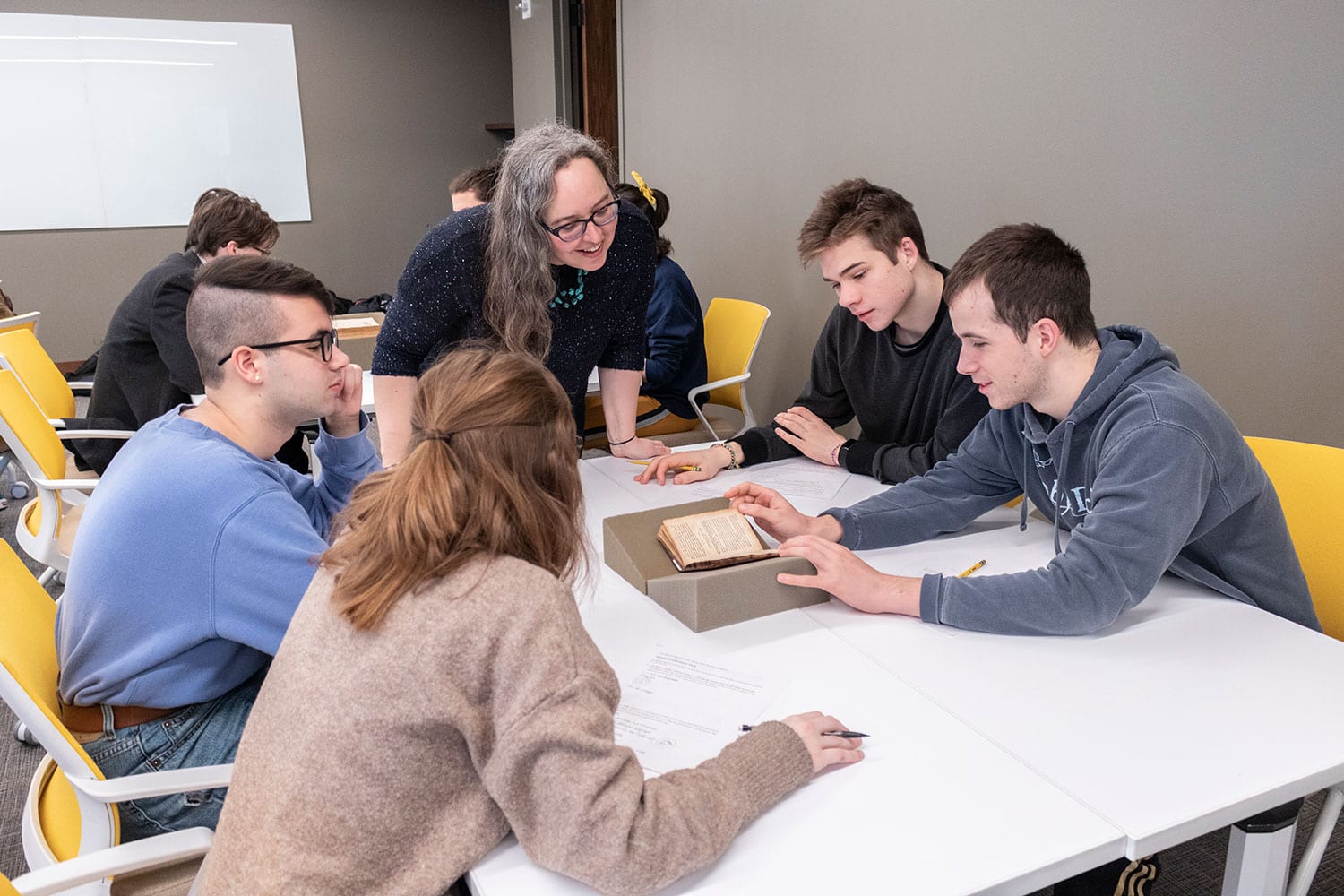Class title: “Lab in Chemical Structure and Reactivity” better known as “Chemistry Superlab”
Taught by: Visiting Assistant Professors of Chemistry Sam Shepard and Grant Spoors
Says Shepard:
Superlab this semester is about photocatalysis. There are certain classes of reactions which use highly reactive species that are hard to work with and hard to dispose of. We’re studying how to use light to run these reactions in order to phase out these reactive species, making the overall reaction more sustainable and green. This is a topic that has had huge breakthroughs in the past 15 years, but in many ways it’s still a bit of a wild west. There’s a lot about these reactions, particularly the mechanism (the pathway we take from reactant to product) that we still don’t understand!
At the end of the semester, I’d like students in this class to understand how chemistry using sunlight can help us make the synthesis of pharmaceutical compounds more sustainable. I also want them to see how interdisciplinary chemistry research can be. The work we do in this lab draws on many of the courses they’ve taken or will take, including organic chemistry, physical chemistry, and inorganic chemistry!
Although the subject matter of Superlab is new to these students, the motivation is familiar to all of us: we need to limit our dependence on fossil fuels and find ways to incorporate renewable sources of energy. This is as true in the chemical industry as it is in transportation.
The Chemistry Superlab is a unique opportunity for juniors to pursue an independent research project. Even though different groups each have their own individual projects, we’re all working towards the same common goal, which means that the students can learn from one another even as they advance their group’s particular project.

Says Spoors:
Superlab this semester is about developing new methodologies that can be used to make biologically relevant molecules. These new reactions are to be developed first in a reaction flask and then adapted to flow chemistry. Flow chemistry can solve a lot of problems that occur with traditional chemistry, but of course it does not fix all. Students will take away from Superlab flow chemistry concepts, which are being used more and more in the pharmaceutical industry. Experienced chemists in the industry can find it hard to adapt to this new type of chemistry and so Haverford chemists will be able to apply this technique quite easily. However, it is not easy, so students can experience failure as well as success.
I wanted to teach the class because I want to see students stretched in science and take on practical work that has not been done before. It is different to normal organic labs in that it is less structured and the reaction that will be conducted in a week’s time is unknown and will only be known after the result of this week’s experiments.
Learn more about other courses offered by the Department of Chemistry.

